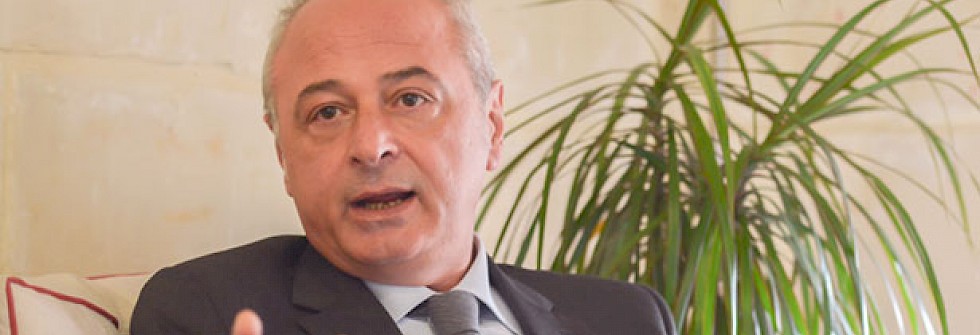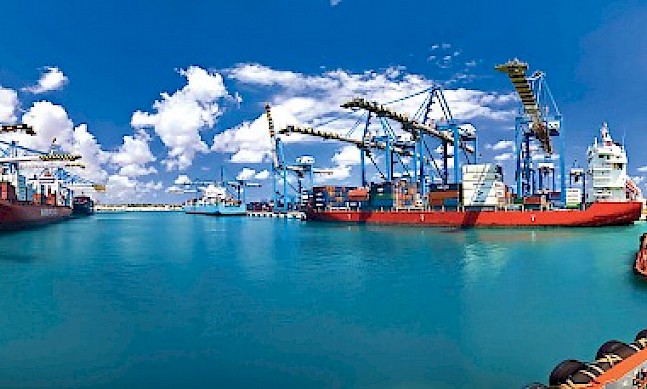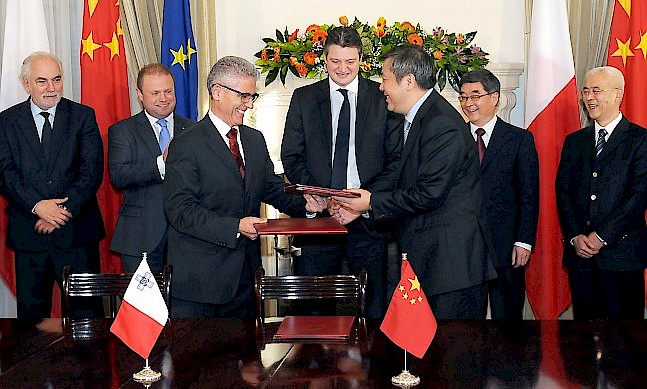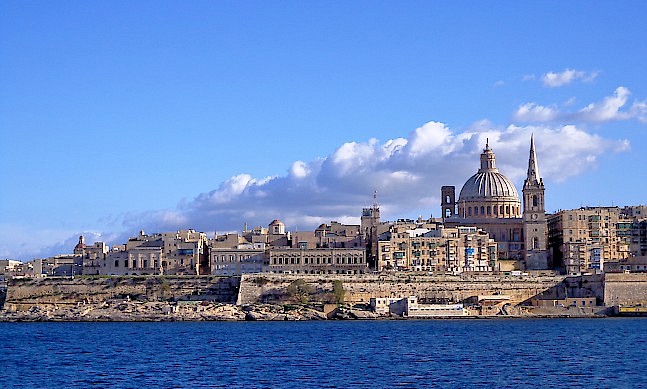As Malta looks to capitalise on its small size and speed to market to become a hotbed for digital and online innovation, the Malta Communications Authority (MCA), which oversees and regulates Malta’s communications sector, is playing a key role is fostering the implementation of new technologies. Dr Edward Woods, chairman of the authority, spoke to The Report Company about what’s happening so far.
The Report Company: What are the main objectives and priorities of the MCA?
Dr Edward Woods: The MCA is the national regulatory authority responsible for the regulation of the communications sector, which includes fixed and mobile telephony, internet and TV distribution services, the postal sector, e-commerce services and radio spectrum management.
MCA’s objective is to ensure the ease of entry to new undertakings, ensure sustainable competition in the sector and ensure that service providers continue to deploy innovative technologies. In addition, the authority ensures value-for-money services so that local businesses and the individual consumer can reap the benefits of technological innovation from an early stage.
The MCA has another strategic role in achieving widespread e-literacy, digital inclusion and the use of ICT as a tool to improve quality of life for everyone, especially disadvantaged groups. To date, we have trained approximately 6,000 adults over the age of 25 year in basic ICT skills and plan to train a further 3,500 this year. The MCA also operates 180 free wifi hotspots across Malta and Gozo.
The MCA also runs a number of initiatives that are aimed at encouraging the use of e-business models by local SMEs and micro enterprises.
The MCA acts as a national point of reference for strategic expertise and foresight in the domain of communication innovation such as cloud computing and digital media. We proactively advise government and stakeholders on future economic and social development opportunities. We also facilitate collaboration between academia, the industry and government in the field of communications and digital literacy.
TRC: How does the MCA facilitate and motivate the industry?
EW: As the national regulatory authority for such a dynamic sector, we need to ensure that we facilitate innovation and continued investment. We are working very hard in this regard to constantly ensure a forward-looking regulatory framework. We do this not only in terms of the regulatory decisions we issue, but also by proposing legislative amendments so that the framework adequately caters for changing market demands in line with technological development.
We will be taking a lead role in advising government on the proposed adoption of changes to the EU framework for telecommunications in order to ensure that EU law takes into account the changing nature of the communications industry as well as the specific needs of Malta in this regard.
Our continuous support and input to national policy also contributes to the overall growth of the national ICT industry. The MCA has carried out a preliminary study on the benefits, challenges, economic drivers and competitiveness factors for establishing Malta as a world-class hub for the provision of cloud computing services. This will boost innovation and productivity across the digital economy.
“We need to ensure that regulation facilitates innovation and continued investment in the sector. We are working very hard in this regard to constantly ensure a forward-looking regulatory framework.”Post This
TRC: How is the agency encouraging further investment in the ICT sector and fostering the implementation of new technologies?
EW: One of the most important factors in creating the right environment for investment in the industry is having a light-touch, forward-looking regulatory regime that fosters economic growth and increased competition but that at the same time safeguards the sustainability of the sector. This means, amongst other things, having an industry-friendly spectrum management policy. It also means that regulatory measures imposed on operators having significant market power must adequately take into account the investment needs of the operator. This has to be achieved without detracting from the effectiveness of the measures in terms of enabling new entrants into the market. Clearly this is not an easy balancing act to achieve, however the MCA is investing a lot of resources in this regard, and so far the indications from the industry are positive.
Malta's size, geographic location and population density mean that it is an ideal location to act as a test-bed for new services. It is a microcosm that offers the potential for testing applications, such as city management and intelligent transport systems, or mobile technologies, on a nationwide basis with limited investment. We have a test and trial licensing scheme which aims to exploit Malta's unique potential as a test-bed. It facilitates access to spectrum for technologies and services that are still at the developmental stage by introducing an accelerated licensing procedure and attractive licence conditions and fees. There are two types of licenses available; one that covers technology tests and the other covering service trials involving third parties or the public.
TRC: What are the key elements of Malta’s national ICT strategy?
EW: The MCA has worked extensively with MITA on the national ICT strategy for the period 2014-2018 – ‘Digital Malta’, which the government will shortly be launching with the aim of transforming Malta into one of the leading digital economies in Europe.
The strategy will focus on three primary themes: digital citizen, digital business and digital government. Each theme will be supported by a number of actions for the realisation of the strategy.
The MCA’s input into the strategy focussed on those areas which fall under the responsibility of the authority, including a number of areas related to the theme of digital business, such as public electronic communications infrastructures, the use of ICT by micro enterprises and electronic commerce. The MCA also contributed heavily to the digital citizen theme, in relation to measures aimed at ensuring that every individual benefits from the digital society, ensuring a safer internet and much more.
The MCA is supporting government in its efforts to ensure that ultrafast broadband is universally available in Malta at affordable prices; providing an environment where mobile operators can continue to roll out next-generation technologies in mobile broadband and securing competitive offers to consumers that compare, as a minimum, to what is available to consumers in neighbouring EU member states. We are also looking into enabling disruptive technologies such as cloud computing and digital media and particularly the impact these will have on our society and establish the MCA as the national point of reference for strategic expertise and foresight in the domain of communication innovation.
“The revolution in communications technology has created enormous social and economic opportunities for Malta.”Post This
TRC: What are the international ambitions of the MCA?
EW: We regularly contribute to the development and implementation of electronic communications and postal regulatory policy at an international level through our ongoing participation in the BEREC (Body for European Regulators of Electronic Communications), the CEPT (European Conference of Postal and Telecommunications Administrations), as well as a number of other expert working groups.
Our strategic geographic location in the heart of the Mediterranean also makes us a natural stepping stone and mediator to foster relations with North African countries. Malta has the natural advantage of being well positioned to act as a logistics hub, offering an excellent opportunity for businesses to simultaneously reach the European and MENA regions. The MCA also collaborates with other non-EU states in this regard.
The MCA offered a comprehensive training programme to officials from the Libyan ministry of communication and informatics, primarily on aspects relating to spectrum management, authorisations and other regulatory aspects of the electronic communications sector. This activity served to strengthen our excellent relationship with Libya in the communications field.
TRC: How does the MCA keep up with developments in technology?
EW: The MCA’s insights into technical and market trends provide the government with focused input towards the development of innovation and technology policies. As an example, the MCA is currently working closely with other stakeholders to analyse and define a set of strategic actions and initiatives to help accelerate the implementation of ultrafast broadband infrastructures in Malta. It has also facilitated the launch of LTE in Malta through its pro-investment spectrum management policies and is currently working on facilitating the continued roll-out of this service across Malta and Gozo.
The MCA is supporting the roll out of a nationwide fibre-to-the-home network and carrying out a feasibility study for an underwater cable between Malta and North Africa or Europe.
TRC: One of the greatest challenges for service providers and network operators is the need for constant investment in their service offerings and their networks. What support does the MCA offer stakeholders in this regard?
EW: The financial crisis we have seen in the last few years has posed serious challenges to this sector, just like the rest of the industries in the global economy. Notwithstanding this, the continued investment and growth in the sector is a clear indicator that the business environment in Malta was and continues to be sufficiently robust to be able to withstand the onslaught of such a severe financial crisis.
In Malta, the demand for electronic communications services and the demand for innovative services by the knowledge based industries is constantly on the increase. This demand for communications services incentivises government and data communications providers to continue investing in network infrastructures and technologies, keeping up with national and international developments and providing the Maltese with platforms that are accessible, reliable and secure.
“One of the most important factors in creating the right environment for investment in the industry is having a light-touch, forward looking regulatory regime that fosters economic growth and increased competition but at the same time safeguards the sustainability of the sector.”Post This
TRC: As Malta adopts the EU’s telecoms regulatory framework, what changes will be made and what impact do you foresee on Malta’s communications sector?
EW: The European electronic communications legislative framework consists of a number of laws that apply throughout the European Union member states. This legal framework is based on the promotion of competition by making market entry easier, the stimulation of investment, and the provision of benefit to the consumer in terms of affordable prices, high quality and innovative services.
To date, Malta has always been at the head of the leader board in terms of implementation of EU telecoms legislation but in doing so, we always keep the national interest at the top of our agenda, ensuring that legal transpositions remain conducive to investment.
TRC: What is the MCA doing to strengthen e-commerce in Malta?
EW: The MCA undertakes a number of initiatives to bridge the gap in the take-up of e-commerce by business. The MCA has worked on the development of a national e-commerce strategy, within the ambit of the national ICT strategy, aimed at assisting SMEs to capitalise on the benefits brought about by investing in web technologies. A number of initiatives and measures are being proposed to further drive the adoption of e-commerce, especially by those industries that have the most potential to profit from it and those that are losing out on opportunities to reach global markets through e-commerce.
The e-commerce forum which is hosted biannually by the MCA seeks to create an e-commerce community where industry players and other stakeholders meet on a regular basis to discuss topics of mutual interest, to share experiences and knowledge and to keep abreast with developments taking place in e-commerce. To this end, the forum regularly features presentations by experts on regulatory and market developments and case studies of local businesses who have successfully embraced e-commerce.
TRC: How do you see the ICT sector developing in the coming years?
EW: As the consumption of digital content continues to increase across all markets, the telecoms industry is experiencing radical change as new entrants challenge long-established supply chains and revenue streams.
On the other hand, technological and social developments continue to provide opportunities for this industry to grow.
Major market shifts are being driven by the proliferation of always-connected, powerful mobile devices that have opened up new, unprecedented channels for consumer interaction and data consumption. Furthermore, digital natives are now becoming consumers bringing about major shifts in the way data and content is consumed. Micropayment technologies are also gaining thrust and momentum, enabling new models of revenue generation.








